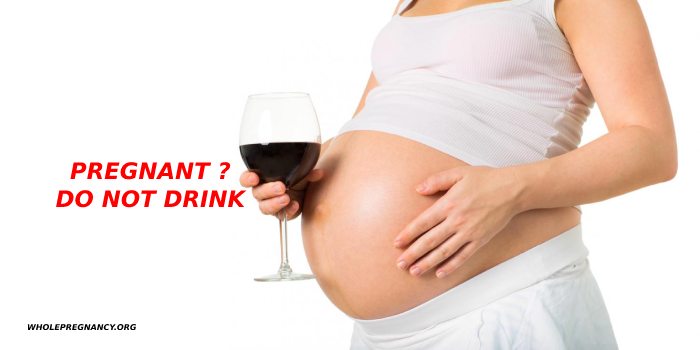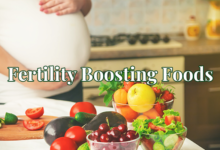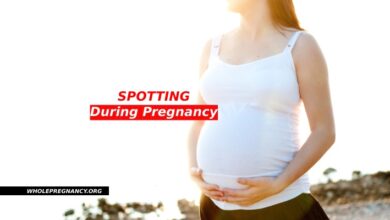
Can a Pregnant woman drink Alcohol and do drugs?
Women who are pregnant should not drink alcohol and do drugs during pregnancy. Even minor drug use can pose risks to the baby’s health, including long-term and short-term conditions as well as death.
American Academy of Family Physicians (AAFP), supports education about the dangers of substance abuse and misuse during pregnancy. AAFP recommends that all adults aged 18 and older are screened for alcohol abuse. Physicians should recommend counseling and treatment for anyone who appears to be suffering from a problem
Alcohol and Drugs During Pregnancy and the path to better health
If you’re pregnant, trying to get pregnant, or suspect you might be, you should stop using Alcohol and drugs. Because anything you eat is passed on to your baby via your bloodstream and the placenta. Harm can occur at any stage of pregnancy. If you have any questions, talk to your doctor.
Tobacco During Pregnancy
Smoking can increase your chances of having a miscarriage or preterm birth. You may have a baby with a low birthweight or other birth defects. Sudden infant death syndrome (SIDS) has also been linked to smoking during and/or following pregnancy.
E-cigarettes and other tobacco products carry the same risks that smoking. There is no safe level of tobacco in pregnancy. Smoking is bad for your health, and it can also be harmful to your baby’s health. When you’re pregnant, it is important to quit secondhand smoking.
Alcohol During Pregnancy
Fetal alcohol spectrum disorders (FASDs) can be caused by alcohol use during pregnancy. FASD’s can be a combination of several conditions that may occur in someone whose mother consumed alcohol during pregnancy.
These effects can lead to learning and behavior problems as well as physical problems. These problems can often be combined. It is not clear that alcohol consumption in certain amounts or at certain times during pregnancy can reduce the risk of these complications. There is no one alcoholic drink that is safer than the others. It is best to avoid alcohol throughout pregnancy, unless your doctor tells you otherwise.
Drugs During Pregnancy
There are major dangers associated with illegal drugs such as heroin, cocaine, and marijuana. They can lead to miscarriage, preterm births, and other birth defects. A drug addiction could lead to a baby being born. This is known as neonatal abstinence disorder. This causes withdrawal in your baby, which can be very distressing. It can have long-lasting health effects.
It is possible to have a miscarriage by using opioids in pregnancy. You could also have placental abruption, where the placenta splits from the uterus early in pregnancy. Your baby could also have fetal growth issues. Talk to your doctor if you are taking opioids to treat a medical condition. Ask them when and how to stop. Your doctor might recommend more severe treatment if you are suffering from an opioid addiction. One option is medication assisted therapy (MAT).
Talk to your doctor once you find out you are pregnant. Some drugs, both prescription and OTC, are safe to continue using. You can get a list of safe medicines. Some medicines may require you to change the type or dosage. Talk to your doctor before you stop using or begin using a new medication. Vitamins and supplements are also included.
Alcohol Guidelines
These are the current medical guidelines:
- If you’re pregnant or plan to become pregnant, it is best to avoid alcohol. This will reduce the risks for your baby.
- Drinking during pregnancy can cause long-term harm to your baby.
You should be aware of the fact that alcohol consumption can affect your fertility and ability for you to conceive. A miscarriage can occur early in pregnancy if you drink too much, especially if you get drunk. The safest way to reduce the risk is to not drink. Drinking alcohol during pregnancy can cause harm to the baby’s development. This occurs throughout pregnancy and not just during the first few weeks. Too much drinking can lead to:
- premature birth
- Low birth weight
- Foetal Alcohol Syndrome (FAS), a condition that can have a negative impact on the mental and physical development of the child is known as Foetal Alcohol Syndrome.
It is strongly recommended that women refrain from drinking alcohol during pregnancy. This could increase the risk of miscarriage. Current advice is to stop drinking alcohol.
Breastfeeding and alcohol
Breast milk contains small amounts of alcohol that can pass to babies. The baby’s milk may smell differently and could affect their ability to eat, sleep, or digest. Avoid drinking milk shortly before the baby is fed. No matter if you are breastfeeding, it is recommended that you consume no more alcohol than 14 units per week. This should be spread over three days. If you drink too much, your health risk increases.
Foetal Alcohol Syndrome
FAS can cause growth problems, facial defects, lifelong learning problems, and behavior problems in children. Foetal Alcohol Spectrum Disorder (FASD), which describes the spectrum of subtle effects that can range from mild to severe, and may be related to one or more symptoms of FASD.
- Low birth weight
- Problems with eating and sleeping
- Problems with hearing and vision
- Learning to do simple tasks and following instructions can be difficult.
- Having trouble paying attention in school?
- Trouble getting along with other people and controlling their behavior
FASD can lead to children needing medical attention throughout their lives, or special education support. You can prevent FAS and FASD completely by not drinking alcohol during pregnancy.
Smoking During Pregnancy
Smoking during pregnancy can not only cause harm to your health but also your baby’s. There have been many health issues linked to it, including:
- premature birth
- Low birth weight
- Miscarriage, and cot Death
- wheezing and breathing problems in the first six month of your life
More than 17,000 children below the age of 5 are admitted to hospital each year due to secondhand smoke. You can reduce the danger to your baby and yourself if you quit smoking. You can reduce the nicotine exposure of your baby if you’re struggling to quit smoking. Try having a cigarette right after feeding. However, if you quit smoking, you can protect your children.
Stop smoking
Encourage others to quit smoking if you are trying to quit. Secondhand smoke can contain tar and toxic chemicals which can be harmful to your health and that of your baby. You are the only one who can quit smoking, but there is support and help available to you to remain a non-smoker.
- Smoking
- Stop Smoking (external link opens a new window/tab)
Illegal drugs
Your baby can be affected by illegal drugs such as cannabis, cocaine, heroin, and ecstasy. Talking to your doctor about using any illegal drugs can cause harm to your baby. You can also be referred by them for further support. Dependent drug users may need treatment to stabilize or get off drugs. This will keep the baby safe.
- Help with alcohol or drug problems
- Narcotics Anonymous
Pills, medicines, and other drugs
Some medicines, including common painkillers and illegal drugs, can also cause harm to your baby’s health. These include medications to treat long-term conditions like asthma, thyroid disease and diabetes. You should be secure:
- Keep taking your medication until your doctor gives you a break
- Before you start any new medication, make sure to consult your pharmacist, doctor, or midwife.
- Before you give you any medication, make sure you let your doctor, dentist, or any other health professional know that you are pregnant.
- Talk to your doctor if regular medication is being used, and ideally before you have a baby, or as soon as possible.
- Use as few as possible over-the-counter medicines
Paracetamol, most antibiotics and dental treatments are generally safe. There are also some immunisations, including tetanus, flu, and nicotine replacement therapy. If you use any of these, your doctor, pharmacist, or midwife should be consulted.




